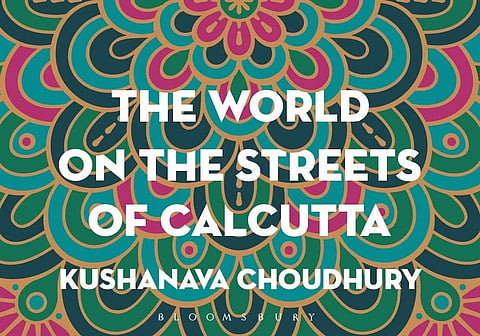Talking books: Kushanava Choudhury’s Epic City: The World on the Streets of Calcutta
Epic City: The World on the Streets of Calcutta is Kushanava Choudhury’s first book and it is the irreverent tone that attracts you to the book.
Along with Choudhury’s book, I was reading Orhan Pamuk’s Istanbul, and I couldn’t help but draw comparisons between the two literary works.
Pamuk’s book is suffused with a deep sense of longing and sadness for his city of birth Istanbul, and it seeps through the text.
He discusses what it means to be an ‘Istanbulu’, which is ultimately very different from say, being a Calcuttan.
The cityscape has changed so much in the past couple of years that it is difficult to talk about the city authoritatively.
Nonetheless, it is a trip down memory lane that Choudhury attempts with his book. While Pamuk holds a mirror to Istanbul, I can’t say that Choudhury does the same.
The chapters throughout the book are idiosyncratic, mostly bordering on the personal, for example, his reminiscences about his job at The Statesman, his tiffs with his wife Durba, the chapter on the Umbrella Park didn’t add much to my understanding about the city.
There are descriptions of the Victoria Memorial, but not many other landmarks are covered in the book.
There is a chapter that looks at the dock area in Calcutta, chronicling the growth and history of CITU, and in a way its demise as well.
The time zones and the spots Choudhury chooses to write about are idiosyncratic.
Almost at the end of the book, which has a Great Gatsby-ish tone, does Choudhury talk about the refugee crisis plaguing Calcutta since 1971 when Bangladesh was born, the Naxal movement that tore apart the socio-cultural fabric of Bengali society, and killed off an entire generation of bright young minds and forever plunged the city into darkness.
Choudhury keeps drawing upon literary and cinematic examples.
To describe what he thinks is an epic failure on the part of the city, he draws on Ritwik Ghatak’s film Jukto Tokko Goppo, which Choudhury feels aptly and perhaps more poignantly sums up the failure of many generations of Bengalis.
The social and the personal comes together in this memoir to give rise to a different kind of picture of the city.
The book, in fact, begins on a personal note-how the immigrant comes home instead of the other way around, where authors like Jhumpa Lahiri and Bharati Mukherjee chronicle a diasporic life of Indians living in the US.
Kushanava Choudhury comes home to where he truly belongs and that comes across in the tone of the book.
Through a personal narrative, he goes onto relate it with the larger history of the city. It never boils down to sentimentalism though.
Having begun on a personal note he delves deep into various histories of the city in the latter half of the book, based mostly on personal interviews conducted by him.
In Part II, you would find a chapter devoted to College Street, the famous ‘boi para’ in Calcutta.
Daryaganj in North Delhi on a Sunday doesn’t even come close to recreating the majesty and awe of that neighbourhood.
Choudhury weaves a large ambitious tapestry - he takes a plunge from the particular to the general or is the other way around?
Sometimes, the two gets intermixed in the leaves of the book making you ask for more.
In a capsule, he serves up the growth of Calcutta, from the times of Job Charnock, as he laid the foundations of this imperial city to the times that now signal Calcutta as a hotbed of a mixture of ideologies, closed jute mills and factories, failed politics and lost dreams.
From books on College Street to chicken in Dacres Lane to kochuri, poets in forgotten alleyways, to visits to pubs where women are not allowed Choudhury’s book allows you a glimpse into a Calcutta you would never think existed.
One wonders whether Choudhury doesn’t try to coalesce his persona; history with that of the city at large.
With the same abandon that he talks about his own personal problems he introduces various Bengali figures of repute-poets, nationalists, reformers, scientists and hold your breath, saints!
He introduces readers to the Bengali Nobel Laureate Rabindranath Tagore and also other cultural luminaries like Satyajit Ray and Ritwik Ghatak.
Of Durga Pujo he writes, “Another city rises during Durga Pujo, an epic city full of possibilities and visions, heroically redrawn.”
Whether Choudhury does finally make peace with his love Calcutta we do not know, all that we need know is that he has managed to give us an alternate vision of the city. Choudhury also writes a subaltern history, as it were of the little magazine in Calcutta.

